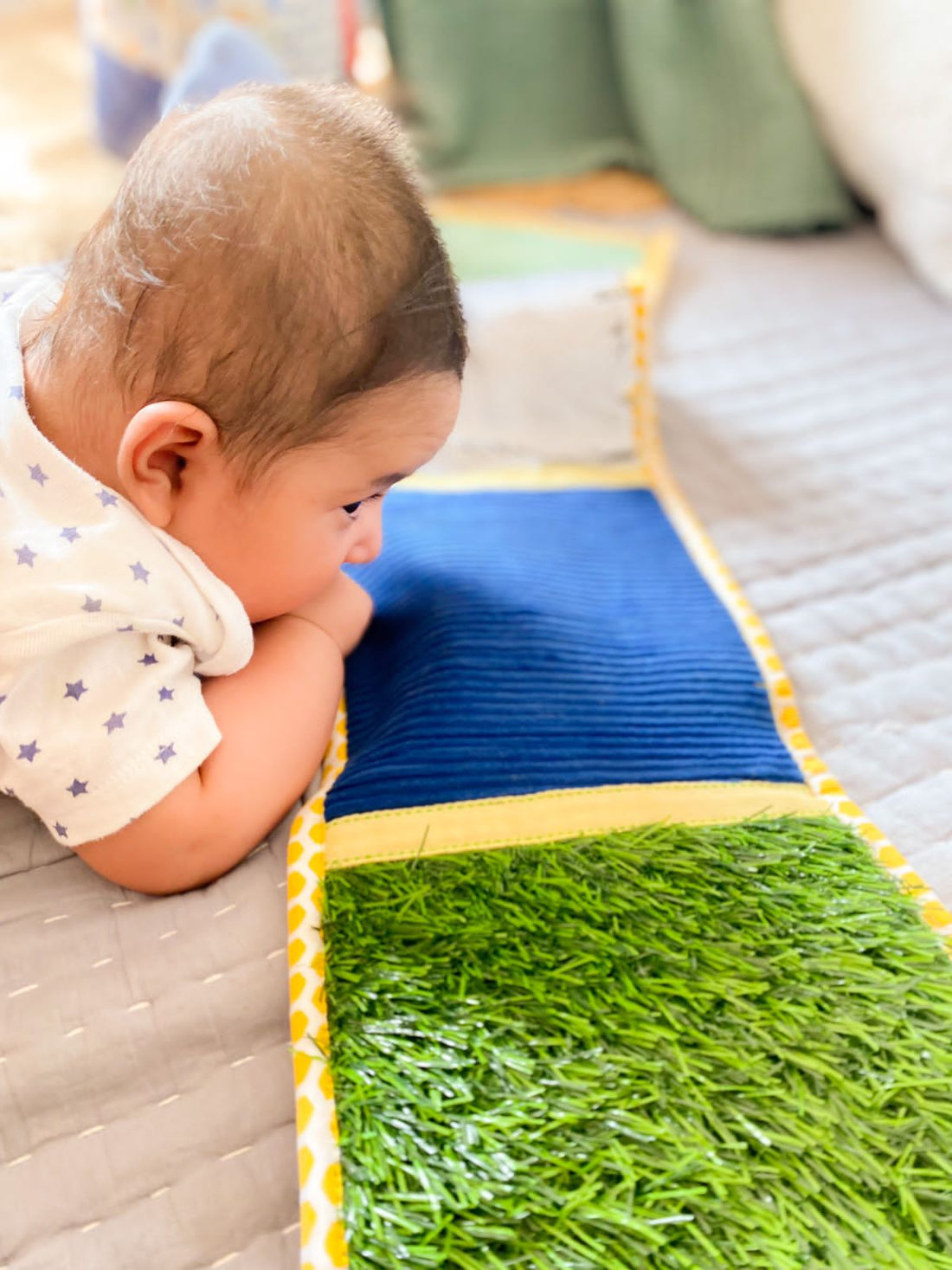
“The creation of something new is not accomplished by the intellect but by the play instinct” – Carl Jung. And this is what sensory development in early childhood does to your child. The mindful usage of touch, hear, taste, smell, and sight in the early stage of life allow the child to observe, explore, indulge in novel adventures and experience evolutions. To familiarise children with balance and coordination is not just crucial but worthwhile. And nothing works more reasonably than the lessons that include their senses. Also, the best part is the probe through senses comes unpretentiously in kids. Nevertheless, if you want to ensure the holistic development of your child, you ought to pour in added efforts through sensory play in early childhood.
Give a five-minute read, and enjoy till the end for everything you need to know about sensory play.
What Precisely Is Sensory Play?
For every play your kid is immersed in, the possibility of your child discovering something novel accelerates. During the early encounters, the five senses are the only source for the children to communicate with their surroundings. And among those five, sight, hearing, and touch are the most active for sensory-perceptual development in early childhood. The productive engagements that stimulate balance, movements and senses define sensory activities.
5 Benefits of Sensory Play
The benefits of sensory-perceptual development in early childhood are in abundance. However, the positivities that divert eyes are as follows:
- Sensory Activities Develop Brain- Many experts claim that sensory play builds brain pathways. They strengthen sensory-related synapses and bridges nerve connections. By engaging actively in such activities, a child learns to decode complex issues. Also, they quench their thirst for exploration, experimentation, observation, problem-solving and creativity.
- Enhancement of Memory- The majority might not accept that the judicious use of sensory play in early childhood directly boosts memory. Every time the pattern repeats, their familiarity with the surroundings gets stronger. The sense of smell, for instance, is the most active sense that enables a child to discover what might be having around them.
- Calms down Anxiety and Despair- If you think that handing over a cell phone to a wailing child is the solution to lessen your frustration, you need to reconsider your decision. Elina Wadia, a certified child nutritionist and a PhD scholar from Purdue University, USA, claims that engaging your child in sensory play aids in intense findings, unlike the increased screen time that disconcerts your child to a greater extent. If your kid shows any relatable indications of dismay, anxiety and isolation, give them your time and engage them in active sensory play. They immerse themselves so beautifully in the activities that they often forget whatever has happened.

- Language Development- Are you missing squishy and engaging conversations with your child? As soon as parents are blessed with this beautiful godsend, they start thinking over the time when they would be busy interacting with their children. Sensory play enables kids to utter sounds, if not words. And, if your child is halfway capable of pronouncing some words, he is likely to engage in detailed conversation influenced by the same. The development of cognitive and gross motor skills leads them to gain interest in the sounds around them.
- Sensory Play Is Viable Indoors or Outdoors- There’s so much to explore that you can help your child grow anywhere despite the ambience. Even though there's a long list awaiting toys that considerably develop cognitive abilities, kids getting immersed in as frivolous as messy mud play recreates an equitable role.
5 Soundest Sensory Activities Examples
The upliftment of kids is the primary motive of every parent, whether it costs an arm or a leg. The foremost thing they need to presume twice about is the resources they carry. It's a wise decision to invest in toys that ensure internal development. For taking the most out of the five senses, here's a list of sensory activities examples that do marvels
- Feet And Feel- Children often get enchanted by the distinct textures they get to touch every day. They experience more fun than a barrel of monkeys touching items and employing their senses. And to execute this activity, https://www.berrybee.in/collections/sensory-toys has brought in feet and feel map. The map will help develop the child's idea of awareness of the external properties and benefit brain development. Miss Preeti Goyal, a mother of a 4-year-old daughter from Ahemdabad Gujarat, claims that her preschooler treasures spending hours exploring textures in her room and never gets bored.

- DIY Coloured Beans- This is the most versatile activity kids can engage in. And for executing it, you would require rice, beans, or stones. The key is to add the colours by making different queues and letting them settle for a while. Hand them over the tray and observe them doing the separation gradually. Doing this will intensify their knowledge of colours while operating the brain actively.
- Sensory Bin- If you want your kid to be a nature enthusiast, this sensory bin is a thing. To create a bin, you can add some leaves, flowers, stones, rocks and sand. The unique texture of every item will let your child explore beyond boundaries. Also, do not ignore to clean everything before you pour, as children tend to taste what they touch.
- Baking- Who doesn't love baking, particularly kids? It has been found time and again that engaging children in cooking or baking is far saner than other activities. Prepare their favourite batter together and let them observe the whole process under your observation.
- Plant Together- What else one can demand than being able to enjoy gardening with kids? To inspire them, you can start with propagation. The complete process of sorting seeds, leaves, soil and water allures them and activates their senses.
Takeaway
Sensory development in early childhood is what every child witnesses in the early phase of life, consciously or unconsciously. Without stressing much, try to engross them and make every activity fun-loving and captivating. Indubitably things can go messy, yet no good can ever be achieved without striving hard.

